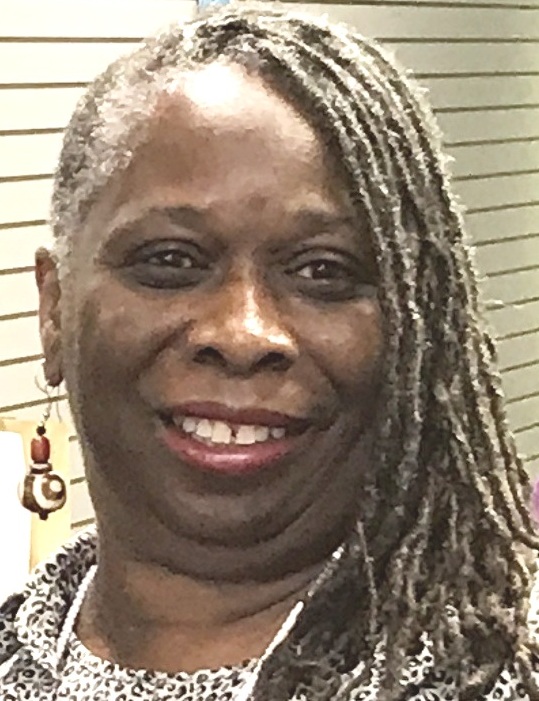Standing in the Gaps
 May 16, 2023
Category: Column, Feature, Featured
May 16, 2023
Category: Column, Feature, Featured
Throughout time, people have banded together in groups to support each other in times of need. From Pullman Porter Arthur James Riggs, who was born a slave and organized the Black Elks Lodge in the 1890s as a resource for the community, to the Black Panther Party’s Community Survival Program and their successful Free Breakfast Program for school children that relied entirely on volunteers, donations, and community spaces (which was later adopted by the federal government) – when government ignored problems or was unable to meet the needs of people in the community, people found ways to support each other.
Recently, nothing has shown how many people are on the brink of financial collapse more than the pandemic. People who never had to ask for help needed the basic necessities when the world closed down. Even the nonprofits that provide aid to people struggled. Other nonprofits stepped in to help them. Instead of celebrating their 30th anniversary of serving the community, The Beech Companies’ Alston Beech Foundation made $1,000 contributions to five non-profits each week to keep them running during the pandemic. Thirty Philadelphia nonprofits providing urgent and critical services received those contributions.
Standing in a Widening Gap
Although the pandemic is supposedly over, people are still suffering and lacking basic necessities. During the pandemic, food insecurity increased among families with children and communities of color. The government has increasingly made cuts in areas critical to basic survival. Aissia Richardson, chief of staff for State Senator Sharif Street (D-3), points to the SNAP emergency allocations COVID, which were discontinued in March.
“The cost of food has risen tremendously,” Richardson explained. “Benefits have returned to normal, leaving families negatively impacted. Many saw an average of $95 reductions in benefits.”
According to Feeding America, 34 million people in the U.S. are food insecure, including nine million children. Every county in the U.S. — 100% — is food insecure. That’s where small and large nonprofits that fight hunger fill in the gap.
Since the 1960s, The Church of the Advocate at 18th & Diamond Streets in North Philadelphia has been serving a hot meal to anyone in need Monday through Friday at the Advocate Café. Their social service program also offers food vouchers. The Chosen 300 Ministries Homeless Program provides meals daily at four locations. The organization also distributes meals and services to the homeless throughout Philadelphia and Montgomery County.
Large nonprofits are providing access to food for the region. Share Food Program was founded in 1986 as a food co-op for Philadelphia communities in need of access to low-cost food. As one of the largest independent food banks in the country, the nonprofit is dedicated to providing food to people in need throughout the Greater Philadelphia region. The Greater Philadelphia Coalition Against Hunger connects people to food assistance programs and a network of food pantries. It educates the public and policymakers about responsible solutions that prevent people from going hungry.
Housing costs are rising, and people are looking for relief. However, under the popular Property Tax Rent Rebate program, more and more applications are being denied lately, Richardson said.
“Many constituents are being denied a benefit they have been consistently receiving or having the benefit reduced because their income rose $10 a month above the maximum rebate benefit amount. There is wide agreement that the main reason for the decline is that state lawmakers haven’t updated the income limits for homeowners to qualify in more than 15 years. For renters, it’s been more than 35 years.”
Organizations like Catholic Social Services remain committed to homelessness prevention by providing limited rent, mortgage and utility assistance and connecting families with resources in Philadelphia who have past due payments and have exhausted all other resources.
Healthcare is another vital survival issue facing many who are a few dollars over the income limit to qualify for Medicaid or who lost coverage after the pandemic. Fortunately, there are nonprofit providers that minimize the financial barriers to care for patients at or below 200% of the federal poverty level and provide services on a sliding scale according to income.
Greater Philadelphia Health Action, Inc (GPHA) grew out of a 1960s social movement dedicated to providing healthcare to every member of the community regardless of income. GPHA provides comprehensive medical, dental, behavioral health, pharmacy and child development services to 85,000 patients at 12 locations throughout the Greater Philadelphia area. For more than 50 years, Delaware Valley Community Health, Inc. has also provided comprehensive healthcare to people regardless of insurance or income at 9 locations in the Philadelphia area.
Richardson is among those concerned that more and more people are losing access to assistance needed to have the basic necessities of life.
“They are being systematically culled from receiving assistance” she explained. “At what point will the program benefit no one because incomes have increased with inflation but the qualifying income limits have remained stagnant?”
Good question!
But, until then, people and nonprofits will continue to support their communities by standing in the gap when the government falls short.
Project
Politics & PhilanthropyTrending News










